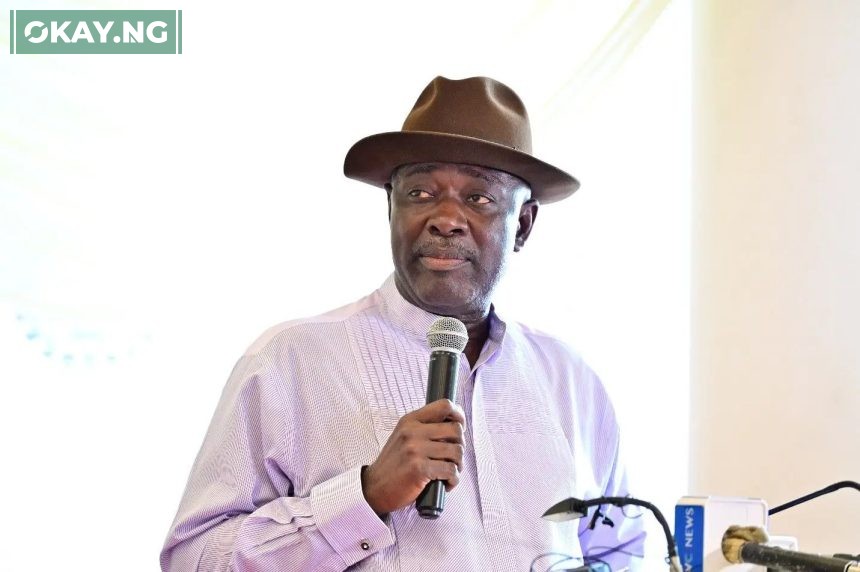Signaling a new era for Nigeria’s oil and gas sector, the Federal Government has renewed its call for indigenous oil companies to significantly increase their production output. This directive comes on the heels of Renaissance Africa Energy’s successful acquisition of Shell Petroleum Development Company of Nigeria, a landmark deal finalized after extensive discussions and regulatory approvals.
Speaking in Abuja, the Minister of State for Petroleum Resources (Oil), Senator Heineken Lokpobiri, emphasized the critical role of these local players in meeting both domestic energy demands and bolstering the nation’s revenue through increased exports. His address to the management of Renaissance Africa Energy at the ministry’s headquarters underscored the government’s confidence in the capabilities of Nigerian firms to steer the industry forward.
The Renaissance consortium, a formidable alliance comprising ND Western Limited, Aradel Holdings Plc, FIRST Exploration and Petroleum Development Company Limited, Waltersmith Group, and international energy firm Petrolin, now collectively manages assets valued at over $3 billion. These assets are currently producing approximately 100,000 barrels of oil per day across 12 key oil mining leases. Furthermore, the group’s operation of two modular refineries in Nigeria’s Niger Delta highlights their growing influence within the nation’s energy landscape.
Senator Lokpobiri pointed out Nigeria’s inherent strength in its highly skilled oil and gas workforce, asserting that the nation possesses “the most skilled labour force in the oil and gas industry in Africa.” This assertion comes at a crucial time as Nigeria’s current oil production hovers around 1.5 million barrels per day, significantly below the ambitious 2025 budget benchmark of 2.1 million barrels per day.
Expressing optimism about the impact of the recent asset transfers, the Minister stated his belief that the takeover of International Oil Company (IOC) assets by Nigerian entities would be a catalyst for increased oil production. He emphasized the strategic advantage of having critical decision-making processes situated within Nigeria, rather than being dictated by distant international headquarters.
“Divestment is a global practice. If you want to attract investments, you must also allow people to divest when they want to,” Senator Lokpobiri affirmed. “I’m proud to say that under the leadership of President Bola Tinubu, these divestments were basically one of the obstacles to the flow of investments.”
Highlighting the inherent capabilities within the Nigerian workforce, the Minister confidently stated, “If you unveil Shell, if you unveil ExxonMobil, if you unveil Chevron, if you unveil all the IOCs, beyond the name and maybe a few of their top management, all those you see who had created these companies are Nigerians.” He then directly challenged the Renaissance management to “prove its mettle by increasing the company’s oil production.”
Raed Also: Renaissance Africa Completes Landmark $2.4B Shell Nigeria Acquisition
Echoing this sentiment, Renaissance CEO, Dr Tony Attah, articulated the company’s ambition to not only manage the divested assets effectively but to surpass the operational standards previously set by Shell. “Shell did its exploration, exploitation, and production to develop its own countries. But we, as Renaissance, are here to do exactly the same business, perhaps do it better to develop our own country, Nigeria,” Dr Attah stated with conviction.
He further emphasized the significance of this moment for Nigeria’s standing on the continent. “It is about time that Nigeria takes that centre stage where we are called the giants of Africa. I know there are still one or two areas where we can still step forward if you go to the entertainment industry, the telcos, perhaps the banking, but I think energy is one area where, if you look at all the indices, we are leading, but we are leading based on data. But we want to lead and lead practically and be the energy leader in Africa.”
This renewed push from the government, coupled with the bold aspirations of indigenous companies like Renaissance Africa Energy, signals a potentially transformative phase for Nigeria’s oil and gas sector. The focus now shifts to the practical execution of these ambitions and the tangible impact on the nation’s production capacity and economic prosperity.













